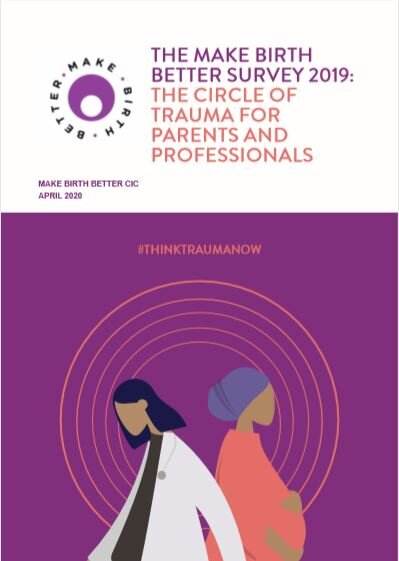Trauma prevention and treatment in light of Covid-19
Birth trauma could skyrocket
A Make Birth Better study from 2019 shows 30% of new mums are not being given the support they need to cope after a traumatic birth experience. A pretty bad status quo. And then we were hit by a pandemic in March 2020. With all the Covid-19 restrictions put into place and the uncertainty amongst parents(-to-be) about the care being offered, our concern became that trauma would skyrocket in the light of coronavirus. So we launched #thinktraumanow: to urge policy makers, more than ever, to think about trauma prevention and treatment.
From the 2019 study, we were able to draw some other strong conclusions – namely that professionals, partners and children are deeply affected by birth trauma too. Many midwifery and obstetric staff are affected by vicarious trauma because of the events they have seen, the conditions they are working in and a lack of emotional support. But again, this was all pre-Covid-19.
So, in light of the Covid-19 pandemic, we stated that it’s essential to talk specifically about how to tackle the traumatic events unfolding because of it.





Next
Read about our Make Birth Better Campaign, our #everywordcounts campaign or return to campaign summary page.